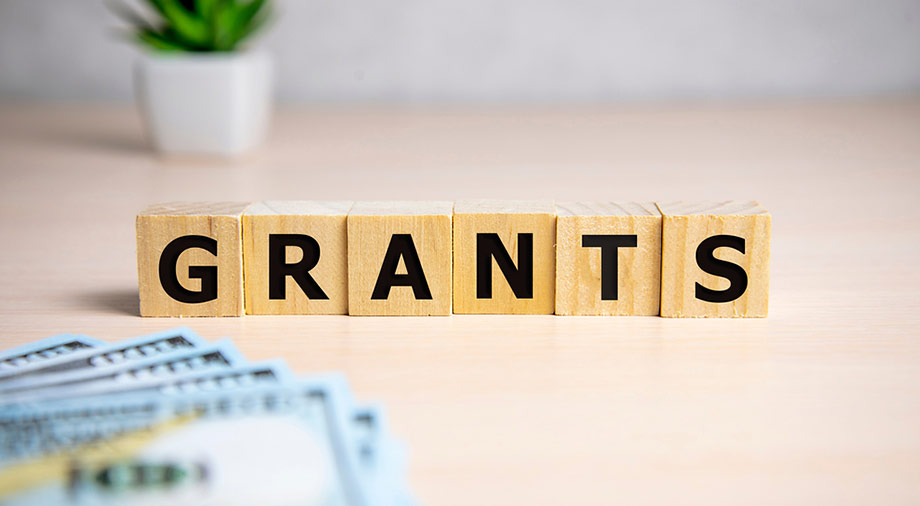Grant programs are one of the tools with which you can use to create and scale up your business, and even to help rescue your business from crisis.
The team at Impulsar works to help people with epilepsy, autism and cognitive impairment. Without proper support and timely medical attention, people with these conditions can experience terrible physical and mental health crises that can even lead to death.
To help patients with these conditions, the Impulsar project has created a smart bracelet. It monitors a set of 25 physical and mental indicators around the clock, which makes it possible to anticipate crises. The device is also useful for their physicians and caretakers, as it can help them to promptly adjust treatments and approaches to help keep sensitive patients safe.
Two years ago, the Impulsar smart bracelet took third place and a UAH 400,000 prize in the Vernadsky Challenge, an international competition for hardware startups started by Max Polyakov in 2015. The prize represented a cash grant to help promising startups like Impulsar develop.
In this article, we will talk about grant programs and how to prepare for grant competitions.
What is a grant?
The pandemic has caused a severe economic crisis. Companies around the world have suffered, but especially small businesses in industries focused on in-person services, like beauty and spa services, entertainment, live events, catering, and hospitality/travel services.
Businesses in these industries faced a massive loss of revenue from the pandemic ranging between 10 and 90%. This caused some of them to shut down for good, including up to a third of all small businesses in the US. In Ukraine, data from the platform YouControl shows that 232,000 small businesses closed in 2020, which represents a spike in closures of 16% from 2019.
These figures could have been higher, but government programs in a number of countries offered lots of help, as did grants.
Grant programs are non-returnable investments. Unlike a loan, a business owner does not need to return the amount they receive and does not need to give a share of their business to the investor.
Grant programs operate not only for business, but also for social and educational projects, and even to pay for university tuition.
Grant programs are created and financed by governments, foundations, and businesses in order to support socially significant projects and entrepreneurship on a global, country, or regional level.
Those who create and fund grant programs are called donors, and those who receive them are called recipients or grantees.
Grant support comes in two forms: in cash and in kind. An example of an in-kind grant would be if a business owner needs to buy equipment or pay for advanced training courses, and then receives that equipment or access to that training directly. Cash grants involve business owners receiving monetary payments, either on a one-time basis or in tranches.
What are the benefits of grant programs?
Grant programs are created to take on humanity’s big challenges on various scales, from global down to regional.
The Covid-19 pandemic is a prime example of one of these challenges, along with environmental protection and access to clean water, medical services, education, and infrastructure. To solve these daunting problems, aid organizations and international governance and expert groups offer businesses and social enterprises the chance to receive their support, including in the form of grants.
Many of these donor groups specialize in supporting the development of particular industries or sectors. For example, now a large number of programs are aimed at creating and supporting businesses owned by women.
In all cases, grant programs are a building material that helps businesses and organizations to achieve goals related to solving global challenges.
Grants can give novice business owners the opportunity to start their own business or purchase necessary equipment. Experienced entrepreneurs can get the chance to develop their businesses. In times of crisis, grant programs can be a key lifeline helping businesses to overcome difficulties..
What kinds of grant programs are there?
There are two main types of grants: micro-grants and regular grants.
Microgrant programs offer benefits of up to $ 10,000.
The main priorities of these programs include:
1. Creating and developing entrepreneurship in a country or region
One example is the joint program of the International Organization for Migration, the UN Migration Agency, and the Government of Japan promoting business development eastern Ukraine.
This program currently provides $5,000 grants for business expansion and $8,000 grants for the creation or expansion of social enterprises.
2. Training for entrepreneurs
The Erasmus for Young Entrepreneurs project allows students to learn from the experience of entrepreneurs from 28 countries of the world during a three- month program. The amount of grant support depends on the student’s region.
3. Formatting
Under these programs, businesses can get support to move their work online. For example, owners of foreign language schools can receive funds to buy computers to conduct classes online.
4. Expansion
If a manufacturer of craft wooden decorations used to sell its products in popular tourist street markets, then an expansion grant could help it to sell its products to broader markets within its country and abroad. Grant competitions in this case can help finance consulting services that will help businesses enter these new markets.
Regular grant programs offer benefits over $10,000.
These larger grant programs support bigger infrastructure, educational, cultural, and other projects.
Entrants who win these kinds of grant competitions represent some of the best in their industries, and they are expected to either fully lead the projects or contribute significantly to their implementation.
A large number of these grant competitions are staged by the European Commission. Last year, one of these competitions was won by the Ukrainian team of the American company EOSDA, which specializes in analyzing and processing GIS data. The team received a $308,000 grant.
Ukrainian specialists working with the project Goldeneye are developing a satellite data analysis system for mining in the European Union.
At the same time, there are businesses which create grant programs for the development of certain sectors of the economy. The Vernadsky Challenge, for example, focuses on space and medicine.
Grants also differ in term. Short-term grants are usually aimed at providing support for no more than six months. Grants to fund purchases of software or hardware would be a good example of these. Another good example is the Erasmus for Young Entrepreneurs program, in which entrepreneurs study in another country for up to three months.
Long-term grants serve large cultural, infrastructure, and other projects, so their implementation time is much longer, up to three years. European Commission grants are good examples of these.
Grant programs also differ in the responsibility of the parties. There are few competitions in which the grantee receives their full financing from donor grants. Usually, businesses pay 30-50% of the project costs themselves using savings and/or loans. Thus, it’s usually the case that donors and recipients share responsibility for the implementation of the project.
How to Prepare for a Grant Competition
New grant competitions appear almost every day, but it can be very difficult to find one that matches well with the project you want to do. Maybe your business or social initiative doesn’t correspond with the grant criteria Perhaps the grant is intended for a different region. Alternatively, you may not have enough experience to implement a grant project.
So how can you find the right grant to compete for and prepare your application?
1. Hunt for grant competitions every week
Sites like StudyKickyour, Grants, and Your Europa constantly publish information about new grant competitions. They have a convenient search system sorting grant competitions by industry, topic, region and requirements for grantees, and other parameters. This will help you find the right grant contest for your idea and prepare for it carefully.
2. Allocate one to six months to prepare your entry
Grant proposals require careful preparation. Your application must correctly describe the market or social pain point you’re trying to target. You will need analytics, which can be prepared independently or with the help of contractors over a period of one to six months.
In addition, you will need a detailed description of your solution to the problem. To do this, use a roadmap that describes in detail all the things your project will do, as well as the cost of materials or services to carry out the project.
3. Prepare your project in accordance with the requirements of the competition
Grant applications and grant competitions have clear structures for registration. They are necessary for creating a common submission format, which helps the business to better explain the problems they wish to solve and present their projects. Donors and grant juries have to rapidly process tens, or even hundreds, of applications as they hunt for the best candidates.
Experience or money
It is quite difficult to get grant money the first time, because the requirements for grant contests are very high. In addition, the process of winning a grant is very competitive.
Even if your first grant application is unsuccessful, it is worth trying again. In the future, your preparations will go much more smoothly, and the quality of your submissions will get better with each application.





